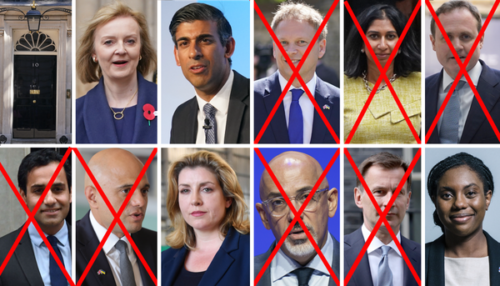Most schools in the UK have already broken up, but as this is a topical session I thought I’d send it out. In honour (/dishonour?) of the Conservative leadership election, we took leadership as the theme of the last week of online classes, centring on the difference between what it takes to become leader, and what it takes to be a good leader once you have got there.

0. What animals would make good leaders and why? For example, a spider because of its consistency in how a web is made, and perhaps the fear it inspires!
1. What are the qualities that make a good leader?
2. What are the qualities you need to become a leader in a democracy?
3. What are the qualities you need to become a leader in an autocracy?
4. In what system would the qualities you need to become a leader match up with the qualities that make a good leader? Should there be tests or exams for people who want to be leaders, or some other way of selecting them?
5. The philosopher Plato thought that democracy was flawed because there was too big a difference between 1 & 2 – people would lie to please the masses rather than telling them hard truths and doing what was really needed. Plato thought the best system, would be one where the leaders were – philosophers! These “philosopher kings” would be trained from an early age to take on the ruling of the city/state.
6. Would people who were trained as philosophers make better or worse rulers than people who were voted for by the people?
7. Which of these leadership styles do you think you would have? Which would you rather work for? (source www.imd.org)
A.Authoritarian Leadership: the leader dictates expectations and outcomes with total control
B. Participative Leadership: the leader will discuss all decisions with others
C. Delegative Leadership: the leader will give many tasks to others to be done
D. Transactional Leadership: the leader sets clear goals and gives out rewards and punishments
E. Transformational Leadership: the leader inspires others with their vision and then lets them work to create it
F. Laissez-faire leadership: The leader lets people make their own decisions, is quite hands-off
8. What about in a family? Which style of “parent leadership” would children prefer – and which do they think would be best for them? [This is like questions 1&2 switched to the family context. I note that my mum’s stated parenting philosophy is F. – in her words, “Feed ‘em, love ‘em and leave ‘em alone.”]
9. Revisit the question, “What makes a good leader?” in the light of everything people have talked about.
Best wishes,
Jason
P.S. Lots of whole-school orders coming in for Sticky Questions, all of which will be with you for the start of term. A good buy just for yourself is Thinking Beans by David Birch – it’s a good read for pleasure as it’s so playfully thought-provoking, and has 40 sessions you can use in the classroom – though the one about “Coalescence” featuring the story of Hermaphroditus might be NSFY4!
